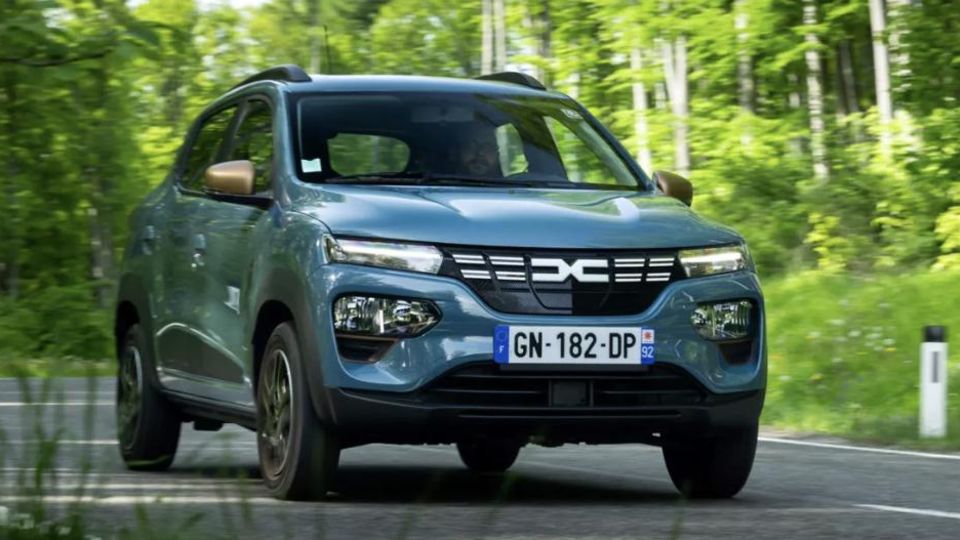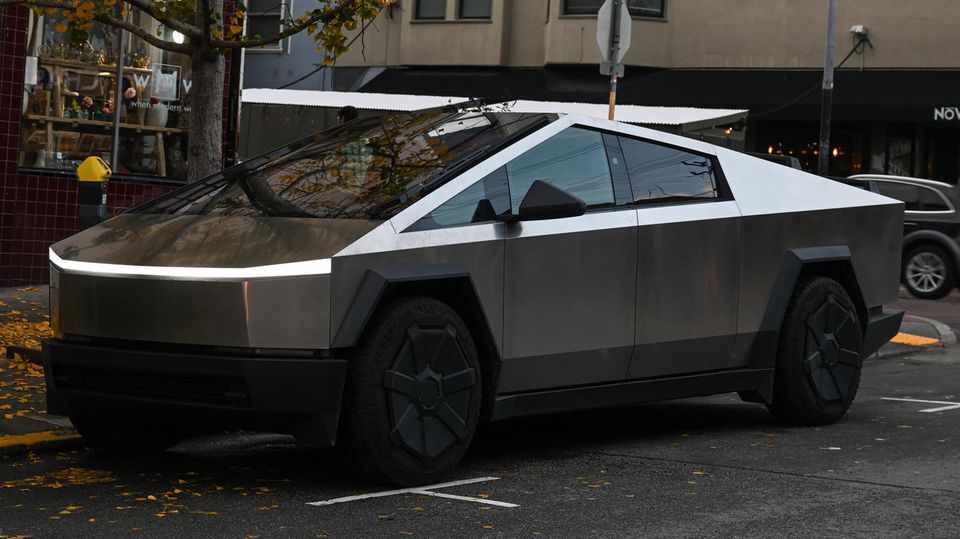analysis
E-mobility
Hertz squanders Tesla at a bargain price: Why rental car companies are getting rid of electric cars
Car rental companies have a hard time with electric cars – there are various reasons for this.
© Dylan Stewart / Picture Alliance
Hertz once wanted to order 100,000 Teslas and 65,000 Polestars – and electrify a quarter of the fleet by the end of 2024. Now the turnaround follows: The car rental company sells 20,000 electric cars and is initially relying on combustion engines again. Hertz is not alone in this.
The car rental company Hertz is flooding the US used car market Electric cars. Around 20,000 electric vehicles are expected to be sold in total, including many Tesla models. These even at prices starting at an extremely low $17,700. The car rental company is thus initiating a remarkable turnaround – because the company had actually planned to build a portfolio of around 100,000 Teslas and tens of thousands more electric cars from other brands and to fully electrify a quarter of the fleet by the end of 2024.
Now it’s time to get rid of it. And with a high loss – because Hertz takes depreciation of 245 million US dollars for the change in vehicle selection. The company explains the reasons for reducing a third of its entire electric car inventory in a letter to the US Securities and Exchange Commission (SEC). It states that the aim is to reduce the high number of unprofitable rentals with low margins and to reduce the damage costs in connection with the Lower costs for electric cars, which are apparently higher than for combustion engines.
Hertz is replacing electric cars it sells with combustion engines
The sale in no way results in a general reduction in the size of the fleet – because Hertz obviously needs a replacement. It goes on to say: “The company plans to reinvest part of the proceeds from the sale of e-vehicles in the purchase of vehicles with internal combustion engines in order to meet customer demand.”
What is interesting is the fact that the vehicles, whose oldest year of manufacture was not long ago, 2021, are being sold with mileages of up to 150,000 kilometers. This suggests that it cannot possibly be due to a lack of interest that the cars have to leave the yard. An annual mileage of 75,000 kilometers is quite impressive.
Unfortunately it just doesn’t seem to be worth it. Hertz CEO Stephen Scherr pointed out higher costs for renting cars last year. Because when renting a Tesla Model 3 costs just as much as, for example, a Chevrolet Malibu – which results in lower margins for Hertz on electric vehicles.
Advantages of electric cars less relevant for landlords
Why electric cars aren’t really worth renting could be due to their nature: the biggest advantages of an electric car come from fuel savings. But that doesn’t matter for companies like Hertz and Co., because the refueling regulations stipulate that customers pay that anyway – and there is no price difference for the rental company for vehicle operation in this regard. On the other hand, electric cars are obviously more expensive when damaged, so you end up with one-sided disadvantages that cannot be compensated for elsewhere.
If Hertz were to compensate for this with higher rents, most customers would probably choose combustion engines anyway, which would mean that maintaining a running electric fleet would be a loss-making business.
Hertz is not alone in reducing its electric vehicle fleet. Sixt also announced in December that it would be separating from Tesla in particular. In a message to German customers it was said that the demand for electromobility was “still clearly below the level of combustion engines” and that on the cost side of electric cars one had to expect higher repair and purchase costs and also had to contend with lower residual values.
The latter “came under further pressure due to discount campaigns by some manufacturers, particularly clearly in the case of Tesla,” Sixt wrote. This has to be taken into account “from a business perspective”.
The market and technology are developing very quickly
In fact, electric cars are currently in a remarkable price discovery phase. After the state environmental bonus was discontinued in Germany, 2024 started with numerous discount campaigns, list price reductions and other offers. An El Dorado for private customers, not very conducive to long-term business plans.
At both Sixt and Hertz, the current situation by no means means the end of rentable electric cars. Both companies independently promised that the fleets would be largely converted by 2030. The return to combustion engines should therefore only be seen as a temporary reaction, but not as a swansong for sustainable transport. Especially since Sixt had already announced that it would continue to build up fleets with electric cars from other brands, such as BYD.
In the coming years, countless developments in electric vehicles will also mean that the disadvantages mentioned will change noticeably and issues such as range, charging costs and repairs will no longer play such a crucial role.
A completely different circumstance is likely to change for rental companies such as Sixt or Hertz: It can currently be assumed that many customers are fundamentally interested in electric cars, but may not be interested in trips that only involve a quick arrival want to deal with the new technology, charging stations and range-optimized routes.
However, the general distribution of these cars and the expansion of the charging infrastructure are progressing even without the large rental companies, which could find themselves in a completely different market by 2030 in which customers naturally want to drive electrically.





